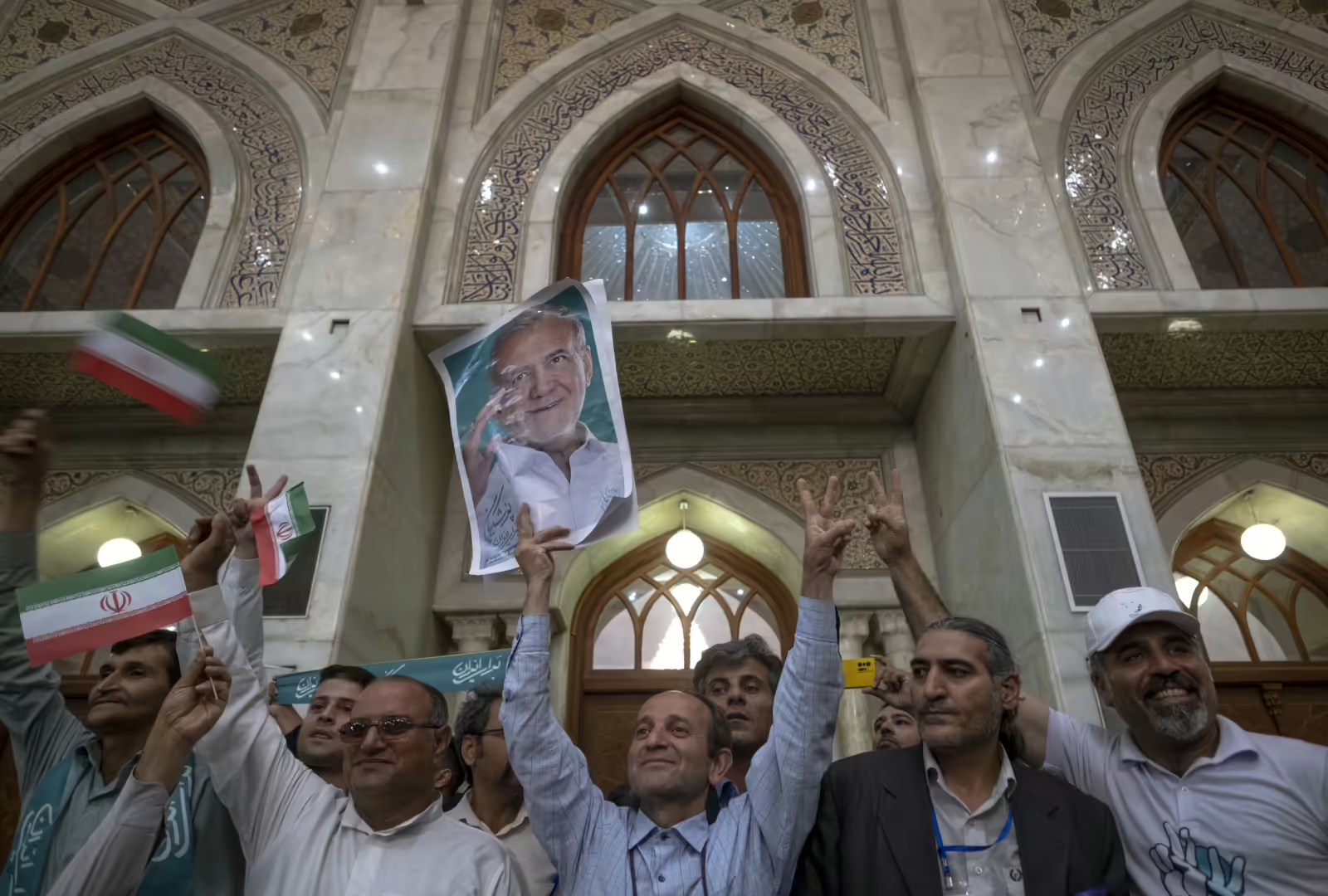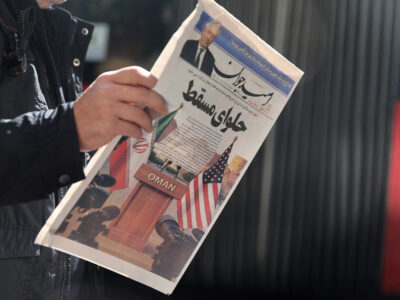Will Iran’s New President Forge a New Foreign Policy?
Iran’s snap elections following the death of former President Ebrahim Raisi have delivered an unexpected result: Though voter participation remained low, Iran’s reformists have made a comeback with Masoud Pezeshkian defeating the hardline candidate Saeed Jalili. The 70-year-old Pezeshkian, a cardiologist by training, is expected to bring moderate foreign policy hands into his government, including some of the key diplomats who negotiated the Iran nuclear deal (JCPOA).
How will Pezeshkian’s election impact Iran’s foreign policy? Will he continue Iran’s orientation toward Russia and China, manifested in Iran’s accession to the BRICS and the Shanghai Cooperation Organisation, or will he complement it with renewed outreach to the US and Europe? Can Pezeshkian’s election revive serious nuclear talks to achieve a renewed JCPOA? And what impact will it have on Iran’s posture toward Israel’s war on Gaza and the risk of the conflict escalating into Lebanon and beyond?
To discuss these questions, the Quincy Institute held a webinar with Adnan Tabatabai, CEO of CARPO, a Germany-based think tank with a focus on the Middle East, Azadeh Moaveni, associate professor at NYU and former foreign correspondent for the Los Angeles Times and Time Magazine, and Mohammad Ali Shabani, Editor of Amwaj.media. Trita Parsi, Executive Vice President of the Quincy Institute, moderated the conversation.
Panelists
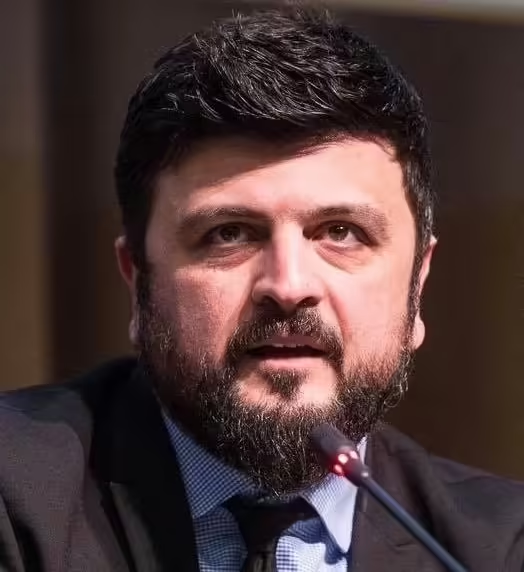
Adnan Tabatabai
Adnan Tabatabai is the co-founder and CEO of CARPO, a Germany-based think tank with a focus on the Middle East. As an Iran expert who travels to the country regularly, Tabatabai is consulted by European policymakers and businesses on Iran's domestic and external affairs. He is the author of the book "Morgen in Iran" (in German, 2016). Through CARPO, Tabatabai has been designing and implementing dialogue initiatives for conflict prevention and peace promotion between Iran and Saudi Arabia, as well as between the six GCC countries, Yemen, Iraq, and Iran. Tabatabai is regularly featured in international media, commenting on and analyzing developments in and around Iran.
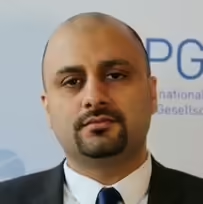
Mohammad Ali Shabani
Mohammad Ali Shabani is an award-winning Middle East expert and scholar. He is the Editor of Amwaj.media, a leading London-based news site focusing on Iran, Iraq, and the Arabian Peninsula countries. He is a graduate of SOAS/University of London and has been published in prominent outlets such as the New York Times, Foreign Affairs, and the Guardian. While based in Britain, he frequently travels to the Middle East.
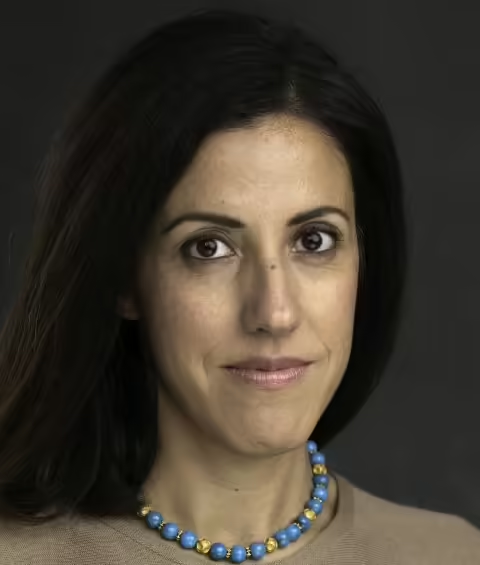
Azadeh Moaveni
Azadeh Moaveni is a journalist, writer, and associate professor at NYU, where she directs the Global Journalism Program. Her books and articles explore the interaction between gender and armed conflict and how women’s rights, security, and political participation are impacted by war and authoritarianism. As a correspondent for the Los Angeles Times and Time Magazine, she covered the wars in Iraq and Afghanistan. She is the author of two books on Iran, Lipstick Jihad and Honeymoon in Tehran, and co-author, with Iranian Nobel Peace Laureate Shirin Ebadi, of Iran Awakening. Her latest book, Guest House for Young Widows: Among the Women of ISIS, was shortlisted for four major prizes.
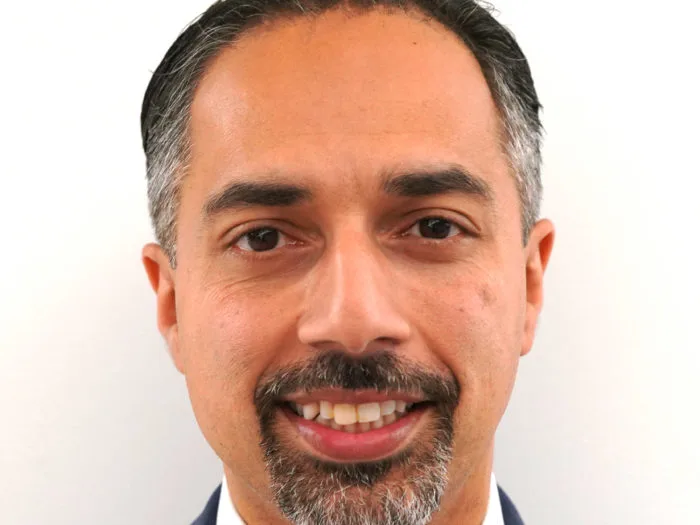
Trita Parsi
Trita Parsi is the Executive Vice President at the Quincy Institute. He was the 2010 recipient of the Grawemeyer Award for Ideas Improving World Order and was named by the Washingtonian Magazine as one of the 25 most influential voices on foreign policy in Washington D.C. in both 2021 and 2022. Parsi is an expert on U.S.-Iranian relations, Iranian foreign politics, and the geopolitics of the Middle East. He is the co-founder and former President of the National Iranian American Council. He received his PhD in foreign policy at Johns Hopkins’ School for Advanced International Studies.

